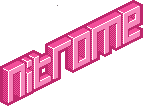
Adobe Flash is a multimedia software platform used for production of animations, rich web applications, desktop applications, mobile apps, mobile games, and embedded web browser video players. Flash displays text, vector graphics, and raster graphics to provide animations, video games, and applications. It allows streaming of audio and video, and can capture mouse, keyboard, microphone, and camera input.

A browser game or a "flash game" is a video game that is played via the internet using a web browser. They are mostly free-to-play and can be single-player or multiplayer.

ActionScript is an object-oriented programming language originally developed by Macromedia Inc.. It is influenced by HyperTalk, the scripting language for HyperCard. It is now an implementation of ECMAScript, though it originally arose as a sibling, both being influenced by HyperTalk. ActionScript code is usually converted to byte-code format by the compiler.

Steam is a video game digital distribution service and storefront by Valve. It was launched as a software client in September 2003 as a way for Valve to provide automatic updates for their games, and expanded to distributing and offering third-party game publishers' titles in late 2005. Steam offers various features, like digital rights management (DRM), game server matchmaking, anti-cheat measures, social networking and game streaming services. It provides the user with automatic game updating, saved game cloud synchronization, and community features such as friends messaging, in-game chat and a community market.
Netscape Plugin Application Programming Interface (NPAPI) was an application programming interface (API) of the web browsers that allows plugins to be integrated.
Adobe Flash Player is computer software for viewing multimedia contents, executing rich Internet applications, and streaming audio and video content created on the Adobe Flash platform. It can run from a web browser as a browser plug-in or independently on supported devices. Originally created by FutureWave under the name FutureSplash Player, it was renamed to Macromedia Flash Player after Macromedia acquired FutureWave in 1996. It was then developed and distributed by Adobe Systems as Flash Player after Adobe acquired Macromedia in 2005. It is currently developed and distributed by Zhongcheng for users in China, and by Harman International for enterprise users outside of China, in collaboration with Adobe.
A local shared object (LSO), commonly called a Flash cookie, is a piece of data that websites that use Adobe Flash may store on a user's computer. Local shared objects have been used by all versions of Flash Player since version 6.

Adobe AIR is a cross-platform runtime system currently developed by Harman International, in collaboration with Adobe Inc., for building desktop applications and mobile applications, programmed using Adobe Animate, ActionScript, and optionally Apache Flex. It was originally released in 2008. The runtime supports installable applications on Windows, macOS, and mobile operating systems, including Android, iOS, and BlackBerry Tablet OS.

Whirled is a virtual world website and video game created by Three Rings Design. Its Open Beta stage was announced at the Game Developers Conference in 2007. It makes use of Adobe Flash as an applet embedded into the website while also having pages of HTML and JavaScript in a sidebar to allow players to manage their friends list and browse various categories of user-generated content. The concept is comparable to the virtual worlds in the PlayStation 3 game Home and Second Life, while also incorporating aspects of feed-based social media sites like Facebook and Twitter. It pushes to make all content user-created, mainly with its approach to creative accessibility using Flash's affinity for 2D vector graphics and various web compatibilities to make it very simple for players to upload a wide variety of content using simple, conventional file formats. Some examples of this include uploading PNG files to create in-game objects, and MP3 files to create a music playlist for a player's room.

Ovi by Nokia was the brand for Nokia's Internet services. The Ovi services could be used from a mobile device, computer or via the web. Nokia focused on five key service areas: Games, Maps, Media, Messaging and Music. Nokia's aim with Ovi was to include third party developers, such as operators and third-party services like Yahoo's Flickr photo site. With the announcement of Ovi Maps Player API, Nokia started to evolve their services into a platform, enabling third parties to make use of Nokia's Ovi services.

A paywall is a method of restricting access to content, with a purchase or a paid subscription, especially news. Beginning in the mid-2010s, newspapers started implementing paywalls on their websites as a way to increase revenue after years of decline in paid print readership and advertising revenue, partly due to the use of ad blockers. In academics, research papers are often subject to a paywall and are available via academic libraries that subscribe.

Nitrome Games Limited is a British independent video game developer based in London. The company formerly developed Unity-based games for Web browsers, but now publishes and develops games across multiple platforms including mobile, Nintendo Switch, and PS4, with a few releases on Steam.

Google Chrome simply known as Chrome is a cross-platform web browser developed and created by Google. It was first released in 2008 for the Microsoft Windows operating system built with free software components from Apple's WebKit and Mozilla's Firefox. Versions were later released for Linux, macOS, iOS, and Android, where it is the default web browser. The browser is also the main component of ChromeOS, where it serves as the platform for web applications.
SWFObject is an open-source JavaScript library used to embed Adobe Flash content onto Web pages and to protect the flash game against piracy, which is supplied as one small JavaScript file. The library can also detect the installed Adobe Flash Player plug-in in all major web browsers, on all major operating systems (OS), and can redirect the visitor to another webpage or show alternate HTML content if the installed plug-in is not suitable.

TrueAchievements is a website that tracks player's achievements and Gamerscore for games and applications for the Xbox Series X/S, Xbox One, Xbox 360, Windows Phone, Games for Windows - Live, Windows 7, Windows 8, Windows 10 and Windows 11 platforms. It is published by TrueGaming Network, which also publishes the TrueSteamAchievements and TrueTrophies sister websites, catering respectively to Valve's PC platform, Steam, and Sony's PlayStation. TrueAchievements uses a method of assessment titled "TrueAchievement" score, in addition to Xbox network Gamerscore. The site is a member of the Xbox Community Developer Program, and as of July 2019, TrueAchievements has over 400,000 registered users including the two highest-scoring Xbox players. In 2014, the TrueAchievements Xbox One application was made available to allow users to access several of the site's features directly on their consoles. TrueAchievements reached 750,000 registered users in March 2022, and registers 6 million monthly unique visitors and 25 million pageviews every month. It is the second most visited Xbox-related website after www.xbox.com.
Google Cast is a proprietary protocol developed by Google for playing Internet-streamed audio/video content on a compatible consumer device. The protocol is used to initiate and control playback of content on digital media players, high-definition televisions, and home audio systems using a mobile device, personal computer, or smart speaker. The protocol was first launched on July 24, 2013, to support Google's first-generation Chromecast player. The Google Cast SDK was released on February 3, 2014, allowing third parties to modify their software to support the protocol. According to Google, over 20,000 Google Cast-ready apps were available as of May 2015. Support for Google Cast has since been integrated into subsequent devices, such as the Nexus Player and other Android TV devices, as well as soundbars, speakers, and later models of the Chromecast. Consumer devices that natively support the protocol are marketed as Chromecast built-in. As of October 2017, over 55 million Chromecasts and Chromecast built-in devices have been sold.
Google Play Services is a proprietary software package produced by Google for installation on Android devices. It consists of background services and libraries for use by mobile apps running on the device When it was introduced in 2012, it provided access to the Google+ APIs and OAuth 2.0. It expanded to cover a variety of Google services, allowing applications to communicate with the services through common means.

Far-Play is a software platform developed at the University of Alberta, for creating location-based, scavenger-hunt style games which use the GPS and web-connectivity features of a player's smartphone. According to the development team, "our long-term objective is to develop a general framework that supports the implementation of AARGs that are fun to play and also educational". It utilizes Layar, an augmented reality smartphone application, QR codes located at particular real-world sites, or a phone's web browser, to facilitate games which require players to be in close physical proximity to predefined "nodes". A node, referred to by the developers as a Virtual Point of Interest (vPOI), is a point in space defined by a set of map coordinates; fAR-Play uses the GPS function of a player's smartphone — or, for indoor games, which are not easily tracked by GPS satellites, specially-created QR codes— to confirm that they are adequately near a given node. Once a player is within a node's proximity, Layar's various augmented reality features can be utilized to display a range of extra content overlaid upon the physical play-space or launch another application for extra functionality.
Video game monetization is a type of process that a video game publisher can use to generate revenue from a video game product. The methods of monetization may vary between games, especially when they come from different genres or platforms, but they all serve the same purpose to return money to the game developers, copyright owners, and other stakeholders. As the monetization methods continue to diversify, they also affect the game design in a way that sometimes leads to criticism.

A progressive web application (PWA), or progressive web app, is a type of application software delivered through the web, built using common web technologies including HTML, CSS, JavaScript, and WebAssembly. It is intended to work on any platform with a standards-compliant browser, including desktop and mobile devices.












